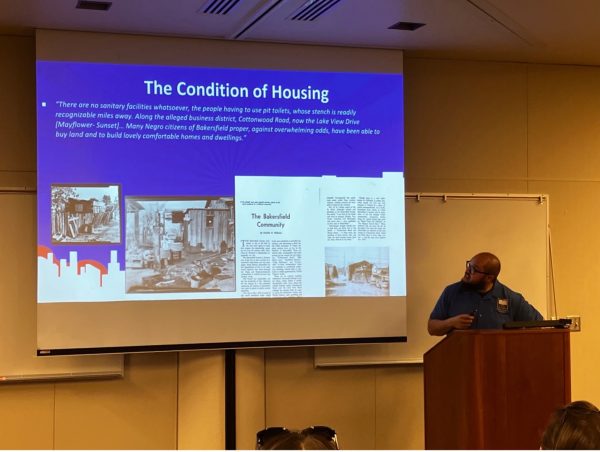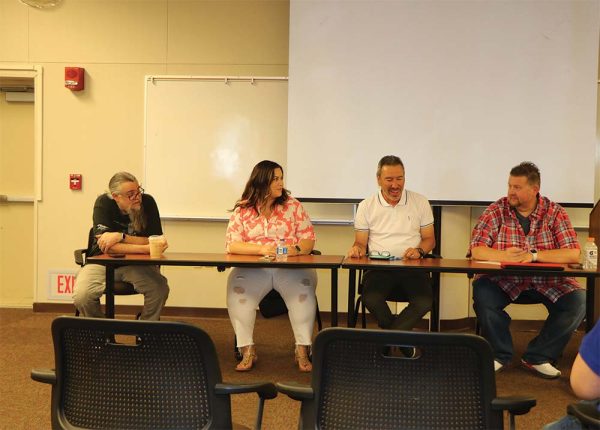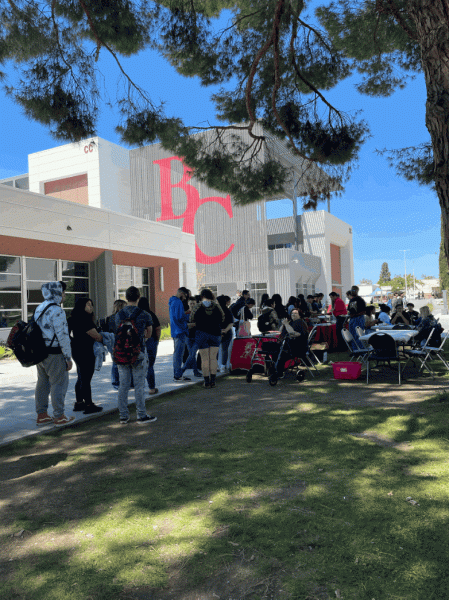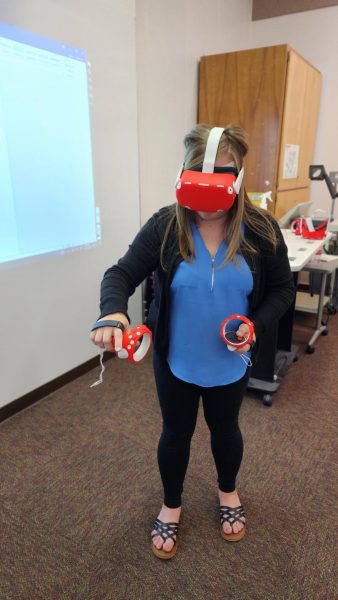Bakersfield College discusses the issues of public health surrounding Latino communities during COVID-19
April 9, 2021
Bakersfield College held a webinar to answer questions regarding the public health issues surrounding Latino communities during the COVID-19 pandemic on March 23.
The webinar monitors were Charles Daramola, professor and Program Director of the Public Health Program at BC, and Isis Forney, a graduate from the nursing school at BC. The panelists were Reyna Olaguez, Executive Director of South Kern Sol, Emanuel Alcala, Assistant Director for the Central Institute, Jennifer Martinez, PH.D. candidate for Portland State University, and Diana Tellefson, Executive Director of the United Farm Workers Foundation (UFWF).
Forney asked the panelist why there has been so much mistrust about COVID-19 in the Hispanic community.
Olaguez explained that the reason is because they did not have the money to help them during the COVID-19 crisis.
According to Olaguez, The United Against COVID-19 Coalition applied for a grant from the County in order to provide more supplies to Latinos who were struggling with the pandemic. However, Kern County’s Supervisor, Zack Scrivner, rejected the proposal and because of this, they were not able to provide many services for minorities in need.
“As a result, I really do feel we lost a lot of lives because many folks didn’t get the outreach that they needed,” Olaguez stated.
Martinez then added that another reason as to why there is so much distrust in Latino communities is because of the frightfulness. “Fear from public charge and being excused from reliving funds. Local governments need to figure out how to regain that trust.”
According to Tellefson, there have also been questions and distress on whether legal status and insurance coverage is required in order to get the resources for COVID-19 such as vaccines. According to Olaguez, “everyone qualifies for the vaccine regardless of documentation status.”
Another question was if there will be any resources for people who work in the fields, factories, or other jobs that require close contact and for individuals who have been laid off or let go.
Olaguez informed The United COVID-19 Collison established a resource guide. “It includes all of the resources available for our communities, helping by going door to door delivering these to our communities,” Olaguez added.
She also explained that they will be relaunching the Harvest Program on April 1. This program will be targeted towards people who have been impacted by the pandemic and who are unable to work. They will be providing financial assistance and food supplies to Latinos regardless of their citizenship status.
One of the final questions that were asked was why have brown and Black communities been impacted the most by the virus. Alcala explained that the reason is not because they are more likely to contract the virus but because of health issues. “People of color tend to have hypertension and diabetes and the likelihood for death is much greater,” Alcala said.
The webinar ended with Daramola thanking all of the panelists and informing everyone that he hopes that they can have similar discussions in the near future.










